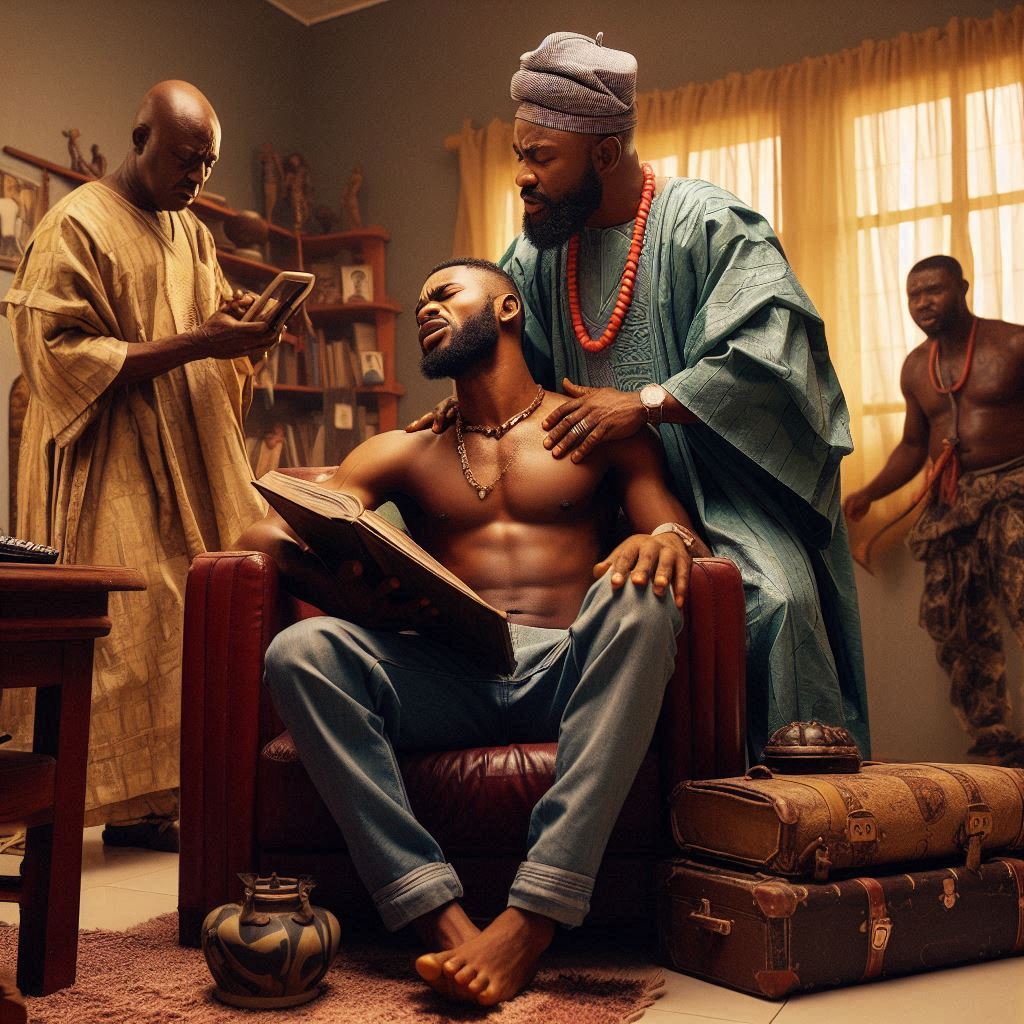Introduction
Embarking on a career in Nigerian performing arts is a journey filled with endless possibilities and opportunities for creative expression.
Nigeria’s rich and diverse cultural tapestry provides a fertile ground for individuals aspiring to make their mark in the entertainment industry.
From the traditional folk performances of the various ethnic groups to the contemporary music, dance, and theater productions, the Nigerian performing arts scene is a vibrant mosaic of talent and creativity.
In this dynamic industry, passion and dedication are the driving forces that propel individuals forward on their path to success.
Whether you dream of gracing the stage as an actor, captivating audiences with your dance moves, or enchanting listeners with your music, the Nigerian performing arts industry offers a multitude of avenues for aspiring artists to explore and flourish.
Understanding the importance of honing one’s craft and staying committed to continuous improvement is paramount in navigating the competitive landscape of Nigerian performing arts.
It is a realm where talent meets opportunity, and where perseverance and resilience are rewarded.
So, if you’re ready to embark on this exhilarating journey, armed with passion, determination, and a willingness to learn and grow, the Nigerian performing arts industry awaits your creative spirit.
Embrace the challenges, seize the opportunities, and let your talent shine as you carve out your path in the captivating world of Nigerian performing arts.
Understand the Nigerian Performing Arts Industry
When aspiring to start a career in the Nigerian performing arts, it is crucial to have a solid grasp of the industry. Here are some key points to consider:
Overview of the Nigerian Performing Arts Industry
- Nigeria boasts a vibrant and diverse performing arts industry that is deeply rooted in a rich cultural heritage.
- From traditional dance and music to contemporary theatre and film, the industry offers a wide range of opportunities for creatives.
- The Nigerian performing arts sector has experienced significant growth in recent years, attracting both local and international talent.
Different Sectors within the Industry
- Music: Nigeria is known for its thriving music scene, with genres like Afrobeats gaining global recognition.
- Dance: Traditional Nigerian dances, as well as modern dance styles, play a significant role in the country’s cultural landscape.
- Theater: Nigerian theater is a vibrant platform for storytelling, often addressing social issues and cultural themes.
- Film: Nollywood, Nigeria’s film industry, is one of the largest in the world, producing a wide range of movies and TV shows.
Key Players and Influencers
- Notable artists like Wizkid, Burna Boy, and Tiwa Savage have made a name for themselves in the music industry.
- In the dance scene, groups like the Nigerian Dance Fusion and Spirit of David have gained recognition for their performances.
- Renowned playwrights and directors such as Wole Soyinka and Tunde Kelani have made significant contributions to Nigerian theater.
- In the film sector, actors like Genevieve Nnaji and directors like Kunle Afolayan have helped put Nollywood on the map.
By understanding the nuances of the Nigerian performing arts industry, aspiring artists can better position themselves for success in their careers.
Read: How to Start a Private Psychology Practice in Nigeria
Develop Your Talent and Skills
The Importance of Honing Your Craft and Developing Your Talent
Starting a career in Nigerian performing arts demands a commitment to honing your craft and nurturing your talent.
It’s not just about raw talent but also about refining your skills to stand out in the competitive industry.
Take the time to explore your strengths and weaknesses as an artist.
Identify areas where you excel and areas where you can improve.
By acknowledging your strengths and weaknesses, you can develop a focused plan for growth and development.
Remember, even the most talented performers need to continually work on their craft to reach their full potential.
Taking Classes or Workshops to Improve Your Skills
Consider enrolling in classes or workshops tailored to your chosen field.
These structured learning environments provide invaluable guidance and feedback to help you improve.
Seek out reputable instructors and training programs that align with your artistic goals.
Whether it’s acting, dancing, singing, or another performing art, there are countless opportunities to enhance your skills through formal education.
Don’t be afraid to step out of your comfort zone and try new things.
You never know where you might discover hidden talents or new passions that could shape your career trajectory.
Continuous Practice and Learning in Your Chosen Performing Arts Field
Continuous practice is key to mastery.
Dedicate time each day to rehearse, experiment, and refine your techniques.
Embrace every opportunity to perform, whether in formal settings or informal gatherings.
Each experience contributes to your growth as an artist.
Remember that progress takes time, so be patient with yourself as you work towards your goals.
Surround yourself with supportive mentors, peers, and collaborators who can offer constructive feedback and encouragement along the way.
Stay open-minded and curious, always seeking out new challenges and opportunities for growth.
By embracing a mindset of lifelong learning and continuous improvement, you can unlock your full potential as a performer in the dynamic world of Nigerian performing arts.
Read: Bridging the Gap in Nigerian Mental Health Services
Networking and Building Connections
The Significance of Networking in the Nigerian Performing Arts Industry
Networking is not just helpful; it’s essential in the dynamic world of Nigerian performing arts.
Establishing connections with industry professionals and fellow artists can significantly impact your career trajectory.
These connections can lead to collaborations, opportunities, and valuable insights that can propel your career forward.
In an industry where relationships play a pivotal role, networking allows you to build a strong support system and cultivate meaningful partnerships that can last a lifetime.
Tips on How to Network with Industry Professionals and Fellow Artists
To effectively network in the Nigerian performing arts industry, consider attending events, conferences, and workshops.
These platforms offer excellent opportunities to meet and connect with like-minded individuals who share your passion for the arts.
Approach networking with authenticity and genuine interest in others.
Be proactive in initiating conversations, exchanging contact information, and following up with new connections.
Additionally, utilize social media platforms to engage with industry professionals and showcase your work.
By actively participating in networking activities, you can expand your circle of influence and establish valuable relationships that can advance your career.
Attending Events, Conferences, and Workshops to Build Connections
Attending industry events, conferences, and workshops is one of the most effective ways to build connections in the Nigerian performing arts scene.
These gatherings bring together artists, producers, directors, agents, and other industry insiders, providing you with ample opportunities to network and forge new relationships.
Be strategic in selecting events that align with your goals and interests, and make the most out of each opportunity to engage with potential collaborators and mentors.
Remember to follow up with individuals you meet, nurture your relationships over time, and continue seeking out new networking opportunities as your career progresses.
Read: The Future of Psychology Education in Nigeria

Create a Professional Portfolio
The Importance of Creating a Professional Portfolio to Showcase Your Work
Creating a professional portfolio is vital in Nigerian performing arts.
It showcases your talent, skills, and versatility to potential clients, agents, and collaborators.
A portfolio serves as a visual representation of your capabilities, allowing industry professionals to assess your suitability for various projects and roles.
In a competitive field like performing arts, having a well-curated portfolio can set you apart from other aspiring artists and increase your chances of securing opportunities.
It provides a centralized platform for prospective employers or collaborators to review your past work and gauge your potential contribution to their projects.
Samples of Your Performances, Recordings, or Projects in Your Portfolio
When compiling your portfolio, be sure to include a diverse range of samples that highlight your abilities as a performer.
This may include videos of your live performances, audio recordings of your vocal or instrumental skills, photographs from theatrical productions or dance performances, and any written materials such as reviews, press clippings, or program notes.
Including samples from different genres, styles, and contexts can demonstrate your versatility and adaptability as an artist.
Additionally, consider showcasing collaborative projects or interdisciplinary work that showcases your ability to collaborate with other artists and professionals in the industry.
The Role of a Portfolio in Attracting Potential Clients, Agents, and Opportunities
A well-curated portfolio can be a powerful tool for attracting potential clients, agents, and opportunities in the Nigerian performing arts industry.
It serves as a comprehensive representation of your skills and experiences, allowing you to effectively market yourself to prospective employers or collaborators.
By showcasing your best work in a professional and organized manner, you can capture the attention of decision-makers and position yourself as a desirable candidate for upcoming projects or collaborations.
Your portfolio acts as a visual resume, enabling you to make a compelling case for why you are the right fit for a particular role or project.
Additionally, sharing your portfolio with industry professionals, attending networking events, and actively promoting your work online can further enhance your visibility and attract new opportunities.
Read: Psychological Impact of COVID-19 on Nigerians
Seek Mentorship and Guidance
Aspiring artists to seek mentorship from experienced professionals in the industry
One of the most crucial steps in starting a career in Nigerian performing arts is seeking mentorship and guidance from experienced professionals in the industry.
Having a mentor can provide invaluable insights, advice, and support as you navigate your career path.
Here are some benefits of having a mentor in the Nigerian performing arts industry:
- Mentors can offer practical advice based on their own experiences and help you avoid common pitfalls.
- They can provide constructive feedback on your performances and help you improve your skills.
- Mentors can introduce you to key players in the industry and help you network effectively.
- They can share industry knowledge, trends, and opportunities that you may not be aware of.
Tips on how to find and approach potential mentors in Nigerian performing arts
So, how can aspiring artists find and approach potential mentors in Nigerian performing arts?
Here are some tips to help you in your search for a mentor:
- Attend industry events, workshops, and seminars where you can meet experienced professionals.
- Reach out to artists whose work you admire and ask if they would be open to mentoring you.
- Use social media platforms like LinkedIn to connect with industry professionals and express your interest in mentorship.
- Join mentorship programs or organizations in the performing arts industry that connect mentors with mentees.
- Be proactive and persistent in your search for a mentor, and don’t be afraid to reach out to multiple people until you find the right fit.
Overall, mentorship is a valuable resource for aspiring artists in Nigerian performing arts, and finding the right mentor can significantly impact your career trajectory.
Don’t underestimate the power of guidance and support from experienced professionals in helping you achieve your goals in the industry.
Uncover the Details: Nigerian Fashion Shows and Events to Attend
Gain More Insights: Women in Nigerian Art: Celebrating Female Artists
Market Yourself and Promote Your Brand
When starting a career in Nigerian Performing Arts, one crucial aspect that aspiring artists cannot overlook is the need to market themselves and promote their brand effectively.
In the highly competitive world of performing arts, standing out and building a strong personal brand can make all the difference in attracting opportunities and gaining recognition.
Importance of Branding and Marketing Yourself
Branding yourself as an artist is essential because it helps you establish a unique identity that sets you apart from other performers.
Your brand is what people will remember you by, so it is crucial to create a strong and consistent image that resonates with your audience.
Effective branding can help you attract the right opportunities, connect with your target audience, and ultimately build a successful career in the performing arts industry.
Strategies for Promoting Your Work
Social Media
In this digital age, social media has become a powerful tool for artists to promote their work and connect with fans.
Platforms like Instagram, Facebook, Twitter, and YouTube can help you reach a wide audience and showcase your talent to the world.
Make sure to create engaging content, interact with your followers, and keep them updated on your latest projects and performances.
Websites
Having a professional website is another crucial tool for promoting your work as an artist.
A well-designed website can serve as your online portfolio, where you can showcase your past projects, share your bio, and provide contact information for potential collaborators or clients.
Make sure your website is visually appealing, easy to navigate, and regularly updated with your latest work.
Other Platforms
In addition to social media and websites, there are various other platforms where you can promote your work, such as online directories, artist networks, and industry-specific forums.
Utilize these platforms to reach a wider audience, connect with industry professionals, and explore new opportunities for collaboration and exposure.
Create a Personal Brand
Creating a personal brand as an artist involves defining your unique identity, values, and artistic style.
Your personal brand should reflect who you are as a performer and what sets you apart from others in the industry.
Consider what makes you special, what inspires your work, and how you want to be perceived by your audience.
Incorporate your clear brand vision into all promotional materials, from social media profiles to websites and other materials.
Remember, consistency is key when it comes to branding yourself as an artist.
Ensure your brand message is uniform across all platforms and accurately represents who you are as a performer.
Create a strong, authentic personal brand to attract opportunities and establish a loyal fan base resonating with your vision.
You Might Also Like: Integrating European Languages into Nigerian Curriculum
See Related Content: Anthropology and Nigerian Family Structures
Stay Persistent and Resilient
Addressing Challenges and Setbacks
Starting a career in Nigerian performing arts can be challenging.
Aspiring artists may encounter various obstacles and setbacks along the way.
From fierce competition and limited opportunities to financial constraints and societal pressures, the path to success in the performing arts industry is fraught with challenges.
However, it’s essential to recognize that setbacks are a natural part of the journey and should be viewed as opportunities for growth and development.
By acknowledging the challenges they face and understanding that failure is not permanent, aspiring artists can maintain a positive mindset and continue striving towards their goals.
Encouraging Perseverance and Resilience
Despite the challenges they may encounter, perseverance and resilience are key qualities that can help aspiring artists navigate the ups and downs of their career journey.
Artists overcome setbacks by staying focused on long-term goals and remaining resilient, emerging stronger.
Cultivate a support network of mentors, peers, and industry professionals for guidance, encouragement, and practical advice.
Artists staying motivated and resilient prioritize a healthy work-life balance, self-care, and their artistic vision.
Examples of Successful Nigerian Artists
Many successful Nigerian artists have faced adversity and overcome significant challenges in their careers.
Burna Boy, despite early setbacks, persisted in pursuing his passion for music, becoming a notable example.
Burna Boy faced rejection and criticism but stayed resilient, remaining true to his unique style, becoming a celebrated global musician.
Adesua Etomi and Timini Egbuson, actors in Nigerian cinema, faced rejection but persevered with dedication and belief in their talents.
Aspiring artists find inspiration in their stories, knowing determination and perseverance lead to possible success.
Discover More: Nigerian Cultural Heritage in Global Arts
Find Out More: Alumni Success Stories from Nigerian Music Schools
Uncover the Details: Funding Opportunities for Anthropology Research in Nigeria
Explore Further: African and Asian Studies: History and Evolution
Conclusion
In summary, stepping into the realm of Nigerian performing arts requires a multifaceted approach encompassing skill development, networking, and resilience.
Begin by nurturing your talents through consistent practice and seeking out opportunities for growth.
Establishing meaningful connections within the industry can open doors to collaboration and advancement.
Craft a compelling portfolio that showcases your abilities and sets you apart from the crowd.
Despite inevitable challenges, maintain unwavering determination and embrace setbacks as catalysts for personal and professional growth.
Your journey in the performing arts is a testament to your passion and commitment.
Embrace the vibrant tapestry of Nigerian culture as you carve your path, knowing that each step forward brings you closer to realizing your dreams.
As you navigate this dynamic industry, remember to stay true to yourself, remain open to new experiences, and never lose sight of the transformative power of your art.
With perseverance and dedication, your journey in Nigerian performing arts is bound to be filled with boundless opportunities and remarkable achievements.




